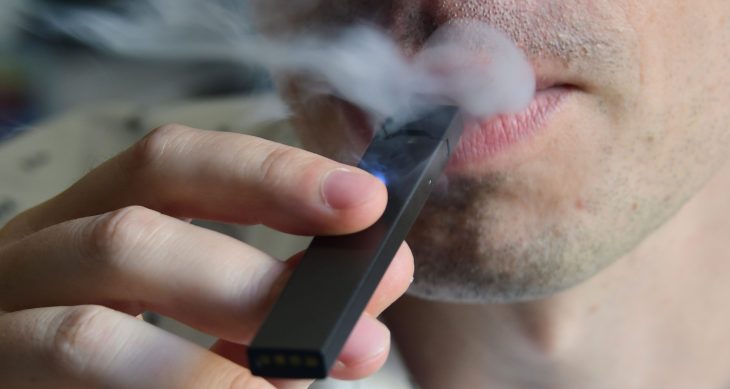
Walmart is planning to pull electronic cigarettes from stores, according to a report by CNBC citing internal company documents.
The move comes as federal regulators are putting mounting pressure on the industry in the face of illnesses that have swept across the country and have been tied to vaping (although the culprit seems to be grey-market products used for THC consumption — rather than tobacco).
However, regulators and private sector health advocates are both alarmed by the dramatic increase in teen vaping rates, and have made moves to ban flavored e-cigarettes. Some countries where smoking is rampant are taking a preliminary step of banning electronic cigarettes altogether.
“Given the growing federal, state and local regulatory complexity and uncertainty regarding e-cigarettes, we plan to discontinue the sale of electronic nicotine delivery products at all Walmart and Sam’s Club U.S. locations,” the company said in a memo, according to CNBC reporting.
Earlier this month the philanthropic organization affiliated with billionaire former mayor Mike Bloomberg said that it would commit $160 million to get kids to stop vaping. Just a day later, the White House said that it would take steps to ban the sale of flavored e-cigarette cartridges.
Meanwhile, the health officials are scrambling to find a cause for the vaping-related lung illness that has sickened at least 530 people in the U.S., according to new reports. So far, seven people have died from the illness, according to a statement yesterday from the Centers for Disease Control and Prevention, and no single substance or product has been connected to the cases, yet.
So far, the illness has cropped up in 38 states.
Walmart has already taken steps to limit teens’ access to tobacco products. The company raised the buying age for tobacco goods to 21 earlier this year. It was a response to what regulators have called an “epidemic” of teen vaping with at least 25 percent of students claiming to use e-cigarettes.
This all spells bad news for Juul, the leading e-cigarette supplier, which raised $12.8 billion from the tobacco giant, Altria Group in a December 2018 investment.
As the dominant e-cigarette brand, with something like a 70% market share, the company has become the focus of regulatory scrutiny. Earlier this month, the FDA threatened the company with regulatory action as a result of its marketing practices.
So far, Juul has said it will comply with all regulations imposed by the government. When the latest suggestion of a federal ban on flavored products went out, the company said, “We strongly agree with the need for aggressive category-wide action on flavored products. We will fully comply with the final FDA policy when effective.”
Walmart did not respond to a request for comment at the time of publication.



